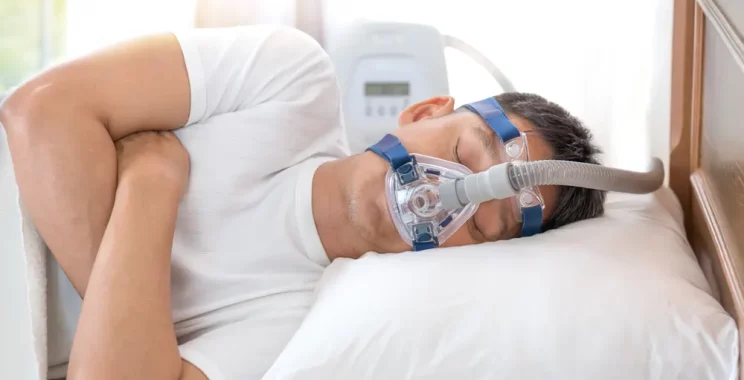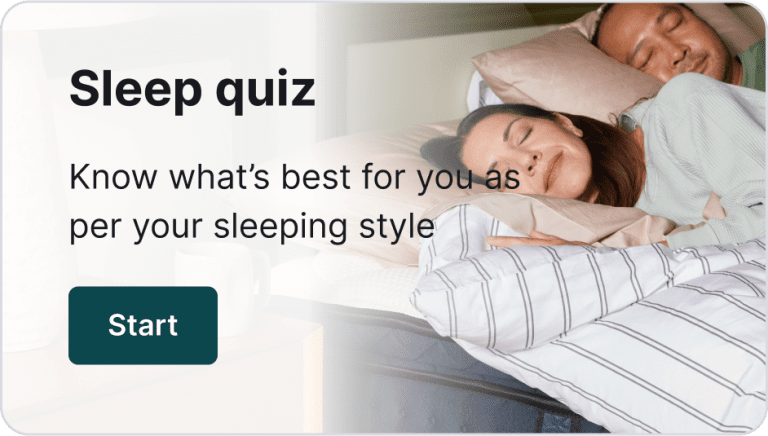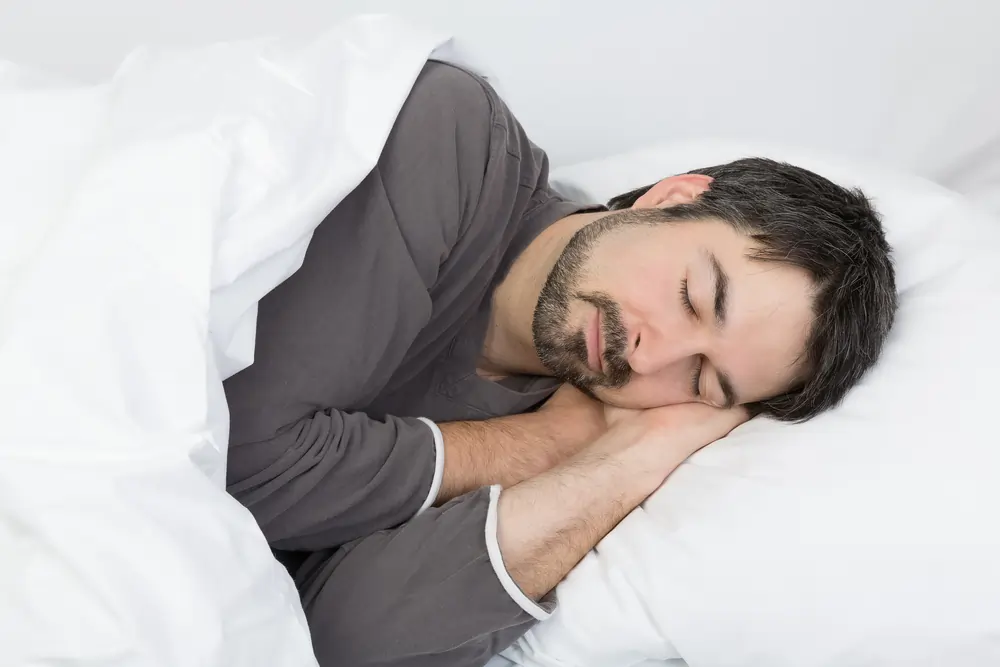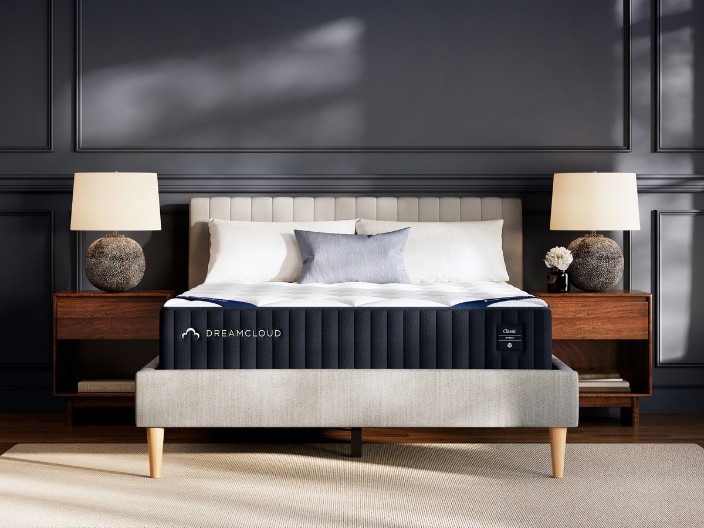What Is CPAP: Continuous Positive Airway Pressure
Share
Fact checked
Reviewed by experts
Updated
January 25, 2023
Quick read
4 mins to read
List of Content
Inadequate sleep is one of the significant health problems faced by people across the globe. Lack of enough sleep significantly impacts individuals’ performance and efficiency. Among the various reasons that prevent people from enjoying a healthy and relaxing sleep through the night, sleep apnea has emerged as the most common cause.
For people suffering from sleep apnea and seeking ways to enjoy a comfortable sleep through the night, CPAP might be the solution. This article offers detailed information about CPAP treatment, its benefits, possible side effects, and the best ways of using the CPAP machine.
What Is CPAP?
CPAP is a revolutionary method for treating sleep apnea and other breathing disorders and minimizing sleep disruptions. It stands for “Continuous Positive Airway Pressure” and helps keep people’s breathing airways open while they sleep by continuously delivering air to them.
The therapy relies on applying mild air pressure to prevent any obstructions in breathing while sleeping. Many people often face difficulties getting used to a CPAP treatment methodology since it involves a mask. Despite that, it is emerging as one of the best ways to manage the problem of sleep apnea.
What Is a CPAP Machine?
What is a CPAP machine. A CPAP machine is a device placed along the patient’s bedside to deliver just enough air pressure to keep their upper airway passages open.
People suffering from sleep apnea need to use the sleep machine CPAP every time they sleep. Users need to exercise patience to get used to this sleep apnea machine. It is advisable to seek advice and guidance from an expert to understand the proper working of the CPAP machine to get the best benefits.
Components of CPAP Machines
The machine comes with a set of key components, and learning about them is essential to get accustomed to sleeping with a CPAP machine. The machine comprises a mask that the users need to wear over their nose or nose and mouth. A tube connects the mask with the motor of the breathing sleep machine. The motor blows air into the tube, further delivered to the mask, and held in place with the help of straps.
Users can choose from the four types of CPAP masks as per their specific breathing needs.
Nasal Mask
The nasal mask covers only the nose and pumps air into the passageways through the nasal cavity.
Nasal Pillow
A nasal pillow delivers air directly into the nasal cavity with the help of a pair of prongs, each of which extends directly into the nose.
Full Face Mask
A full face mask covers both the nose and mouth; in some cases, it may even cover the entire face for better breathing comfort.
Oral Mask
Oral masks are quite uncommon and cover only the mouth of the users to deliver air into their passageways.
How Do CPAP Machines Work?
Being aware of what is CPAP is only sometimes enough to resolve people’s doubts about its usage in terms of providing relief from sleep apnea. Learning about what does a CPAP machine do can make it easier for users to integrate it into their everyday routine and enjoy its various benefits.
A CPAP machine pushes air into the upper passageways through the user’s nose or mouth. The machine applies mild pressure to push the air minimizing the chances of collapsing airways.
What Are The Benefits Of CPAP
The most common benefits of using a CPAP breathing sleep machine include the following.
Improves Sleep
Sleep apnea machine helps improve sleep quality and duration.
Minimises Snoring
CPAP machine helps promote unobstructed breathing, which helps minimise snoring.
Enhances Productivity
People enjoy a more relaxing and comforting sleep by sleeping with a CPAP machine, which impacts their daytime productivity and efficiency.
What Are The Possible Side Effects Of CPAP
The likely CPAP side effects include the following.
Skin Irritation
Some people might experience rashes or skin irritation due to frequent use of CPAP supplies like masks, tubes, and straps.
Dry Nose
Users might suffer from dry or stuffy noses due to air leakage from the CPAP masks.
Sense Of Claustrophobia
Regular use of the sleep machine CPAP may make some users feel claustrophobic due to additional air pressure.
Tips for Comfortably Using a CPAP Machine
Gaining an understanding of what are CPAP machines for is just one aspect of maximising their benefits. Users must be aware of the essential tips for using sleep apnea machines comfortably. The most important tips include-
Invest in a Humidifier
It is advisable to use a CPAP machine with a heated humidifier to avoid the problems of dry nose, congestion, and nosebleeds.
Choose The Mask of the Right Size
Users need to make sure that they choose the masks of the right size to minimise air leakage.
Clean The Machine Regularly
The users should make sure to clean the sleep machine CPAP regularly as per the directions provided by the manufacturer.
Adjust Appropriate Machine Settings
If users find the apnea machine’s air pressure too forceful, they should consider adjusting the machine’s settings to match their comfort levels.
Use Earplugs
Many users might find it difficult to fall asleep due to the sound of the CPAP machine, in which case it is advisable to use earplugs to block out the noise.
Conclusion
Being aware of what is a CPAP machine and the best ways to use it can help people sleep better irrespective of their breathing issues. The machine can prove extremely beneficial for people suffering from sleep apnea and other breathing disorders. The diversity of use of the CPAP machine and its various benefits can significantly enhance sleep quality and duration.
FAQs
For obstructive sleep apnea, continuous positive airway pressure (CPAP) therapy is a frequent treatment. To help you breathe while you sleep, a CPAP machine uses a hose linked to a mask or nosepiece to deliver consistent and stable air pressure.
People with obstructive sleep apnea and other breathing issues are protected against bouts of airway collapse by the forceful air given by CPAP (continuous positive airway pressure).
One of the most popular sleep apnea treatments is a CPAP (continuous positive airway pressure) machine. When you sleep, it maintains your airways open so you can get the oxygen your body needs for optimum performance.
Risks are uncommon; however, they can include bloating and gastrointestinal discomfort. Stop using your CPAP machine as soon as you suffer one of these issues. Meningitis can arise with CPAP use, which is a potentially lethal risk.
IGF-1 is notable for promoting protein synthesis and preserving muscle mass. In our study and previous research, significant increases in IGF-1 have been observed in individuals who adhere to CPAP. Therefore, in CPAP-compliant individuals, the GH axis’ restoration and the rise in IGF-1 likely led to weight gain and a probable increase in LBM.
You might not have been using the therapy for long enough, be taking off your mask at night, need to alter your pressure, or have minimal symptoms. Before you see the effects of CPAP therapy, it could take a few weeks of consistent, proper use.
This website does not offer medical advice nor professional medical services; rather, it is provided solely for educational, informational, and/or entertainment purposes. Individuals seeking medical advice should consult a licensed physician. The information provided should not be used for diagnosis or treatment of any condition, disease, or injury. When you have a medical condition, you should always talk to licensed doctor or other certified medical professional. You should never delay seeking professional medical advice or treatment based on the contents of this website. Call 911 or immediately go to the nearest emergency room if you think you may have a medical emergency. The contents of this website are provided “as-is”, Sleep Authority and its parent, subsidiaries, affiliates, employees, contributors disclaim any warranty of the information contained herein. Please contact using contact form to report any errors, omissions, misinformation, or abuse.
Sleep Authority is brought to you by Resident, the company that brings you Nectar, DreamCloud, Awara, Wovenly, Bundle, Home Well Designed and Level Sleep.










